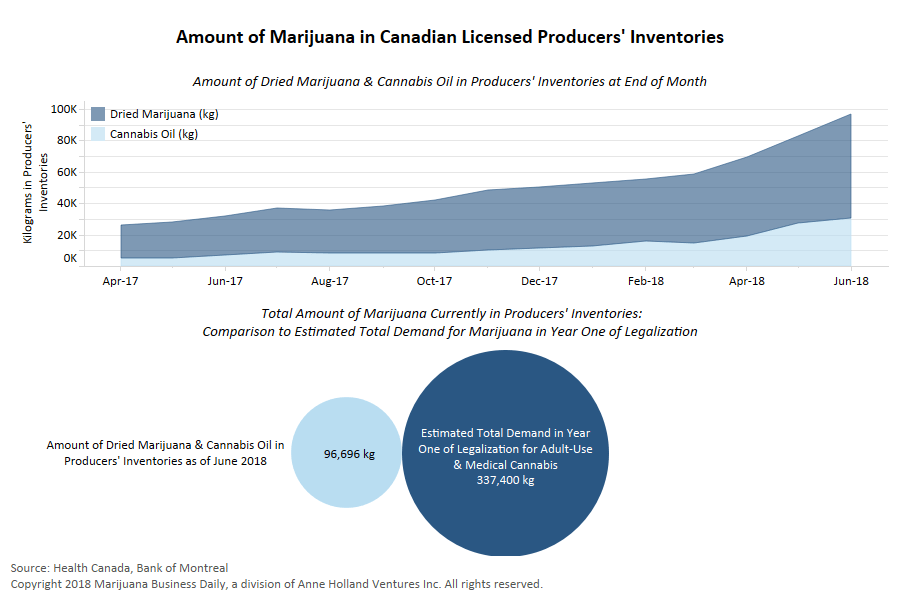Limited supply and red-hot demand for investment opportunities in Canada’s marijuana industry have caused stock prices and market capitalizations for cannabis companies to surge ahead of legal adult-use sales later this month.
Market capitalizations of some of these companies in the Great White North now rival – or have even eclipsed – those of more well-known and established businesses such as Molson Coors, Harley-Davidson and Kohl’s.
The deal represents the largest investment in a single cannabis company on record, but perhaps more important, it signaled Wall Street’s willingness to get involved with the cannabis industry. Bank of America Merrill Lynch financed Constellation’s investment, and Goldman Sachs advised on the deal.
The Canadian Marijuana Index jumped 395 points from Aug. 14 to Sept. 12, an 82% increase in less than a month.
As stock prices soared, so did market capitalizations for Canadian cannabis companies. Market caps are determined by the number of outstanding shares in a company multiplied by the share price.
As of Oct. 4, British Columbia-based Tilray’s market cap was just shy of $14 billion, surpassing that of Molson Coors – which itself recently became involved in the cannabis industry through a joint venture with Quebec-based licensed producer The Hydropothecary Corp.
Molson Coors, however, brought in more than $11 billion in revenue in 2017 and holds more than $30 billion in total assets. By contrast, Tilray’s revenue for the six months ending June 30 was roughly $17.2 million, with assets valued at just over $106 million.
Chris Damas, editor of the BCMI Cannabis Report, believes that the underlying financial metrics typically used by investors to judge the health of a company and evaluate its investment potential are not as relevant in the early days of the cannabis industry.
“The fundamentals like price and sales are wrong. Investors are not looking at that,” Damas said.
“It’s supply and demand in the short term, short selling and all these technical things that you wouldn’t know just from a balance sheet or an income statement.”
Rising share prices and market caps don’t necessarily mean Canadian cannabis businesses are over- or undervalued; rather, it’s a reflection of intense demand on the part of investors to get involved in the marijuana industry and the relative lack of quality investment opportunities.
Eli McVey can be reached at elim@mjbizdaily.com





